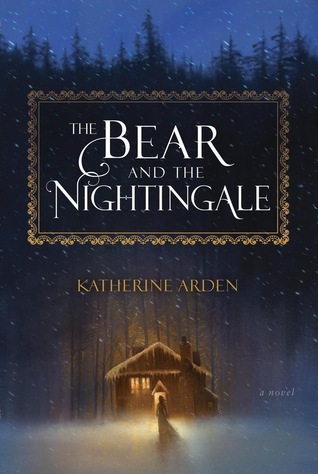Just right for long, dark nights before the fire (real or electric), these three fairytales for adults kept me reading past my bedtime. Beautiful language, strange and mysterious happenings, and a sense of magic link The Bear and the Nightingale by Katherine Arden, Melmoth by Sarah Perry, and Damsel by Elana K. Arnold. But be warned: these are not sweet, gentle stories to put you to sleep. They’ll keep you awake, searching the shadows, with messages that linger long after the final page.
Set in medieval Russia, The Bear and the Nightingale is the story of a family caught between old magic and new religion, the land they have always known and the duties required by their new rulers. At the center is teenage daughter Vasya, born with Second Sight, trying to keep her family safe while growing into her power.
I loved how the novel is an ensemble piece, navigating the relationships among family members trying to survive brutal winters at the edge of civilization. Vasya is a hero to root for: strong, independent, confident, and strange. Her journey has no logical destination, none that doesn’t result in physical or spiritual death, yet she hopes and believes and fights for herself even when she thinks no one else will. Can’t wait to read the rest of the trilogy.
Gorgeous, from the writing to the structure to the building sense of dread, Melmoth tells the story of Helen, a modern woman hiding from her past in Prague. Helen holds a collection of documents describing visitations from Melmoth, a Biblical woman cursed to wander the Earth for her denial of Christ’s resurrection. As Helen reads the stories from an accused witch in 17th century England, a German-born boy during Nazi occupation, a pair of Turkish brothers in early 20th century Cairo, Helen begins to fear. If the legends are true, and Melmoth desires companions for her journey in despair, is she next?
Melmoth reminded me of Mary Shelley’s Frankenstein as a monster story that reveals the weaknesses, flaws, and ugly shame of humanity. Yet in that revelation, hope flickers. Atonement, rebuilding, reconnecting with one’s better self, assisting those who need our help–can it happen before despair takes hold?
With a fiercely feminist twist, Damsel upends the traditional narrative of the prince who rescues the damsel from a dragon. Ama, the damsel, remembers nothing of her life or herself before she awakens slung over Prince Emory’s horse. After naming her, he tells her that she’s his bride, and soon she will be queen of his kingdom. Yet she can’t quite submit to his every whim, and she can’t stop searching for her life before “rescue.”
Although categorized as YA, the novel’s sexual explicitness–none of which is consensual–makes me consider this book as more adult. Yet the themes affect young women: who has ownership over a girl’s/woman’s body, mind, soul? Even if a boy/man tells you that he loves you, has rescued you, will take care of you, does he have the right to control what you do, where you go, how you are in your body? A fiery, disturbing response to “how it’s always been done,” and the lengths to which a woman might go to reclaim the truth of herself.
May these dark fairytales warm your bones in the chilly days ahead!



Comments are closed.